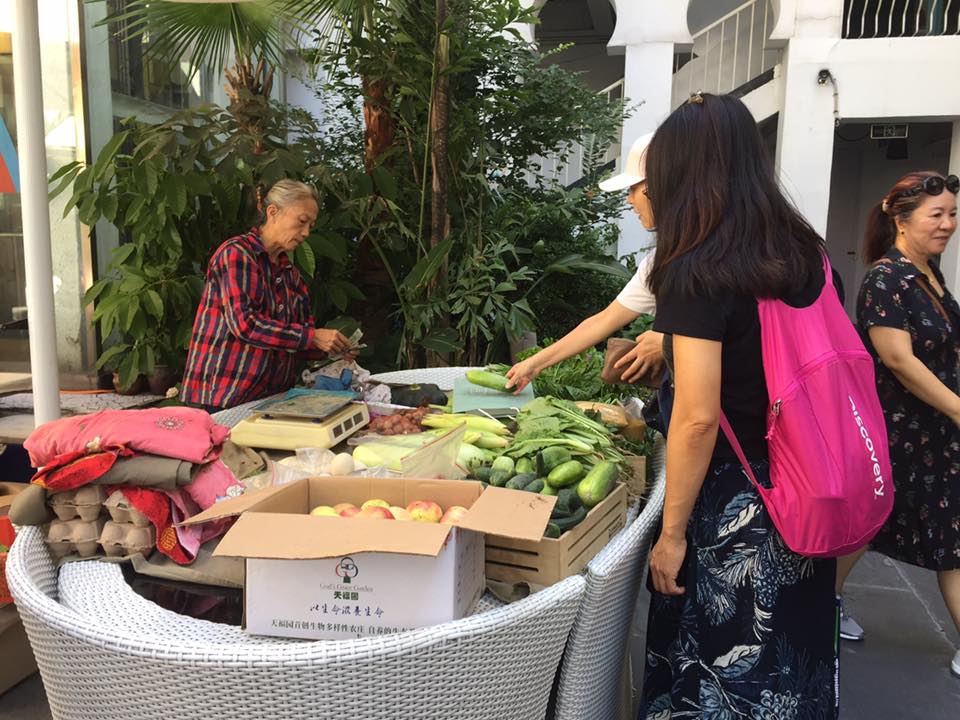Analysis
Slow Food takes off in China, but ‘rural problem’ remains
China is stuck between a desire for agricultural self-sufficiency and a four-decade campaign for urbanization. The Italy-based Slow Food movement held its seventh world congress in Chengdu.

Last week, the seventh Slow Food International Congress opened in Chengdu, capital of China’s Sichuan Province, with the participation of 400 representatives from 90 countries. For the founder Carlo Petrini, “the choice of China has a high symbolic value.”
The movement in China “is taking its first steps,” Petrini says, and Slow Food would like to reach 1,000 villages in the country within five years, as a way to bind Chinese and Italian communities. Not even the choice of the location for the event is casual. Ten years ago, Chengdu with Chongqing launched the first projects linked to the “new campaign” policy, namely the attempt to connect the city to more and more rural areas. Petrini expressed ambitious goals: optimistic ideas that have to be confronted with the critical issues related to China’s past and present.
Slow Food wants to find a new wave of Chinese rural communities and organic markets to respond to the great food insecurity affecting the country, caused by the lack of qualitative controls, pollution and the push for “urban development” over the past 40 years. These are movements born as a reaction to forced urbanization — both the 1980s under Deng’s leadership, as well as those of recent years for the “small and medium level” cities — which led to a gradual abandonment of farms and a drastic reduction of cultivated land. (In 2014, 20 percent of the land in China was “severely” polluted; it is not a coincidence that China is buying land in Ukraine and is now known for land grabbing in Africa.)
These experiments are being developed today in organic markets in big cities (in Beijing, there are now established organic markets like the Beijing Farmers Market) driven by the rising local middle class that demands a quality of life at the level of their economic well-being. On the other hand, however, these desires collide with a historical reality that wants to keep the fields at the center of deliberations and political choices — and historical ties: just think of the dissolution of the Maoist municipalities from Deng’s reforms — which have been the central point of Chinese development for many years.
Neither was it coincidental that Wen Tiejun spoke at the Slow Food event. Wen is a professor at the Institute for Advanced Sustainability Studies at Renmin University and the “inventor” of the Institute for Rural Reconstruction at Southwest University. He argued that in order “to address the changes in progress, it is necessary to work on the integration of urban and rural contexts. Three concepts should be at the heart of this development: solidarity for peasant rights, ecological agriculture security, and rural environmental sustainability. And to do this, we need to move from a capital-based political model to one based on the people.”
Wen’s strong words — rather contrary to the present-day trends in the country — should not surprise us. Recently, the scholar was among the first to deal with certain issues and was able to use the influence he gained with his studies to present to the central government what he calls the “three problems of the countryside,” joining the “new rural reconstruction movement” that led to the Chengdu and Chongqing experiments. But this is a topic that has far-flung origins in China.
Ou Ning, a libertarian intellectual and founder of a rural community in Bishan, said in an article (translated into Italian by China Files) that “over the last 100 years of Chinese history, rural reconstruction has been a fundamental topic of discussion. It has gone through countless vicissitudes, and whenever it reappears, it induces political and intellectual forces to reflect on the capacity for transformation of society itself. China, with its fierce pursuit of modernity, has always experienced it as a dilemma that it is unable to come to terms with.”
Mao himself had focused everything on the organization of the countryside, through the communes — projects stifled by the Chinese migration toward the East, toward underfunded but guaranteed work in the special economic zones.
The internal urbanization and migration is today backfiring in the face of a party leadership intent on developing an internal market of services and international presence. It must be acknowledged, however, that something is happening: It will not revert back to the libertarian utopia of the “new ruralism” (developed in 1910 by the Japanese writer Saneatsu Mushanokoji, who for the occasion also created a magazine, Betulla, that was based — as Ou Ning explains — on the mutual support to Kropotkin).
But surely this new interest in healthy eating and healthy environment could provide solutions to link this re-emerging rural world to other communities around the world. As long as the central government agrees.
Originally published at https://ilmanifesto.it/ai-cinesi-piace-slow-food-ma-il-problema-rurale-resta/ on 2017-09-30
